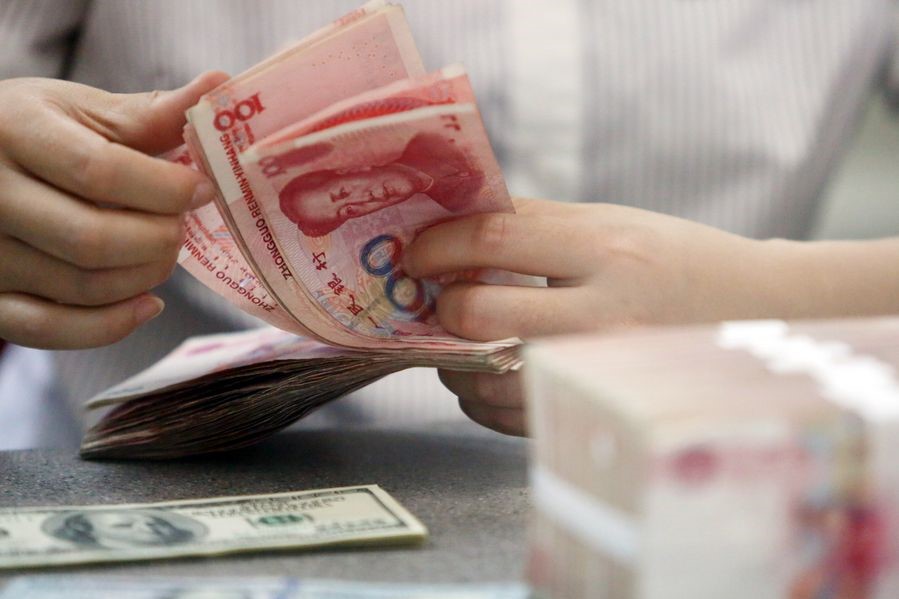Nation eyes big role as investment destination

A worker counts Chinese currency renminbi at a bank in Linyi, East China's Shandong province. [Photo/Xinhua]
China aims to become a major foreign investment destination in the world and an innovation and high-end manufacturing hub in East Asia by 2035, with remarkable improvements in both the quantity and quality of foreign investment utilization, according to a new development plan for using foreign investment during the 14th Five-Year Plan period (2021-25), which was unveiled by the Ministry of Commerce on Friday.
The country will aim to attract a total of $700 billion in foreign investment during the 14th Five-Year Plan period. By 2025, high-tech sectors are expected to account for 30 percent of total foreign investment inflows, up from 29.6 percent in 2020.
The development plan said that pilot free trade zones and ports are set to account for about 19 percent of total foreign investment inflows by 2025, up from 17.9 percent in 2020.
"China is likely to attract more than 1 trillion yuan of foreign investment this year, and in US dollars, the foreign investment is expected to exceed $160 billion," Zong Changqing, director-general of the department of the foreign investment administration of the ministry, said at a media conference on Friday.
As China vows to promote opening-up in more areas and at a deeper level, the plan called for continuously expanding market access while improving the "pre-establishment national treatment plus negative list" management system for foreign investment. The management system puts areas unsuitable for opening on a "negative list", while treating foreign investors no less favorably than Chinese investors at the "entrance stage".
There will be further reductions in the national, pilot free trade zone and port versions of the negative lists for foreign investment, and the country will further open up the manufacturing, services and agriculture sectors, while gradually easing foreign investment shareholding limits to allow foreign investors a controlling stake or sole ownership in more areas.
The plan also called for improving the transparency of the negative lists, and strictly adhering to the principle of "no prohibition means allowing foreign investment to enter" in areas not included on the negative lists.
The plan urged expanding market access in key areas, with efforts to orderly promote the further opening-up of sectors such as telecommunications, the internet, education, culture and medical care, and reduce requirements in areas such as personnel qualifications in sectors including law and transportation.
It also called for steadily promoting opening-up in financial sectors such as banking, securities, insurance, funds and futures, and steadily strengthening opening-up in the capital market, such as lowering requirements for quality foreign investors to strategically invest in listed companies.
Zhou Mi, a senior researcher at the Chinese Academy of International Trade and Economic Cooperation in Beijing, said the plan has sent a clear signal that China will adjust its policy environment to promote foreign investment in the nation.
"Apart from better legislation and implementation of laws and regulations, it is also important to enhance construction of related platforms, coordinate policies from different government departments, and promote the free flow of production factors," Zhou said. Those platforms include pilot free trade zones, national economic and technological development zones, and various trade and investment expos.
Zhou Xiaolan, executive vice-president of Bayer Pharmaceuticals, and also president of Bayer Group in China, said that Bayer, which increased its investment in China by more than 400 million yuan ($62.58 million) last year despite challenges mainly caused by COVID-19, believes the nation holds even greater opportunities for foreign companies during the 14th Five-Year Plan period.
"We've expanded production capacity at our pharmaceutical plant in Beijing, and have also accelerated the use of innovative digital solutions to ensure a reliable supply of Bayer's pharmaceutical products, to address the higher demand of Chinese people in terms of healthcare solutions," Zhou said.
























